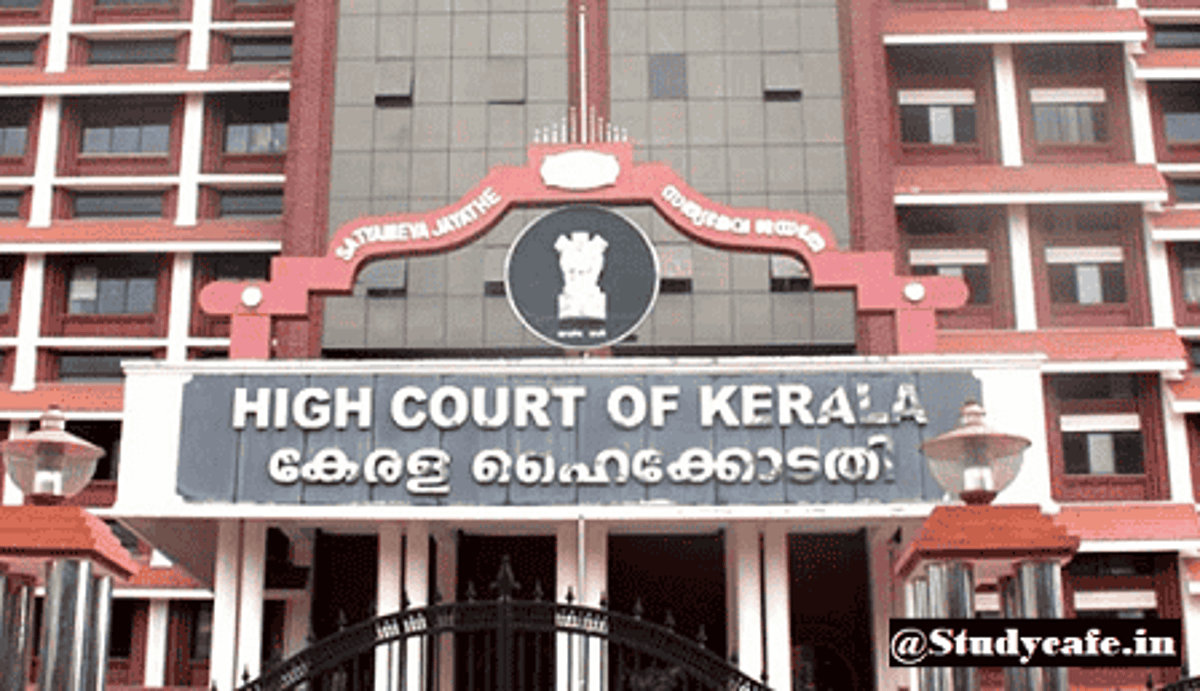Reetu | Sep 19, 2020 |

E-Way Bill- Non-mentioning of GST cannot be seen as an act in contravention when statutorily form does not contain field for entering details
IN THE HIGH COURT OF KERALA
The Text of the Order as follows :
The petitioner has approached this Court challenging Ext.P4 series of notices of detention, whereby a consignment of goods transported at the instance of the petitioner was detained by the respondent on the allegation that there was a discrepancy in the e-way bill that accompanied the transportation of the goods. On a perusal of Ext.P4 series of notice, I find that the reason for detention was that, while the consignment was supported by an invoice which contained the details of the goods transported as also the tax paid in respect of the goods, there was no mention of the tax amounts separately in the e-way bill that accompanied the goods. The respondents therefore detained the goods on the ground that there was no valid e-way bill, supporting the transportation in question.
2. The learned counsel for the petitioner would point out that there is no requirement under the Act and Rules for mentioning the tax amount separately in the e-way bill in FORM GST EWB-01 that the petitioner was obliged to use to cover the transportation in question. It is further pointed that there is no dispute that the transportation was covered both by a tax invoice, as also an e-way bill in FORM GST EWB-01, and when both the documents are perused together, it is amply clear that the transportation was covered by documents that clearly indicated the fact of payment of tax on the goods that were being transported. It is contended therefore that there was no justification for the detention under Section 129 of the Act.
3. Per contra, it is the submission of the learned Government Pleader that as per Section 33 of the GST Act, there is an obligation on every person, who makes a supply for consideration and who is liable to pay tax for such supply, to prominently indicate in all documents relating to assessment, tax invoice and other like documents, the amount of tax which shall form part of the price at which such supply is made. She reads the said provision in juxtaposition with Section 129 of the Act which deals with the power to detain goods in transit. Referring to the provisions of Section 129, it is contended that the goods in question were being transported under cover of documents that had been raised in contravention of the provisions of Section 33. It is argued that, the e-way bill being a document akin to a tax invoice, in relation to an assessment to tax, and not having carried the details regarding the tax amount, the transportation itself had to be viewed as in contravention of the Act and Rules for the purposes of Section 129.
4. On a consideration of the rival submissions, I am of the view that the submissions of the learned Government Pleader cannot be accepted. The power of detention under Section 129 is to be exercised only in cases where a transportation of goods is seen to be in contravention of the provisions of the Act and Rules and not simply because a document relevant for assessment does not contain details of tax payment. As per the statutory provisions applicable to the instant case, a person transporting goods is obliged to carry only the documents enumerated in Rule 138(A) of GST Rules, during the course of transportation. The said documents are (i) the invoice or bill of supply or delivery challan, as the case may be and (ii) the copy of e-way bill in physical form or e-way bill Number in electronic form etc. A reading of the said Rule clearly indicates that the e-way bill has to be in FORM GST EWB-01, and in that format, there is no field wherein the transporter is required to indicate the tax amount payable in respect of the goods transported. If the statutorily prescribed form does not contain a field for entering the details of the tax payable in the e-way bill, then the non-mentioning of the tax amount cannot be seen as an act in contravention of the rules. In the instant case, it is not in dispute that the transpiration was covered by a valid tax invoice, which clearly showed the tax collected in respect of the goods and an e-way bill in the prescribed format in FORM GST EWB-01. Since there was no contravention by the petitioner of any provision of the Act or Rule for the purposes of Section 129, the detention in the instant case cannot be said to be justified.
In the result, I allow the writ petition by quashing Ext.P4 series of detention notices and directing the respondents to release the goods forthwith to the petitioner on the petitioner furnishing a copy of this judgment before the respondents. The learned Government Pleader shall communicate a gist of the directions in this judgment to the respondents for enabling an expeditious clearance of the goods and the vehicle.
In case of any Doubt regarding Membership you can mail us at [email protected]
Join Studycafe's WhatsApp Group or Telegram Channel for Latest Updates on Government Job, Sarkari Naukri, Private Jobs, Income Tax, GST, Companies Act, Judgements and CA, CS, ICWA, and MUCH MORE!"